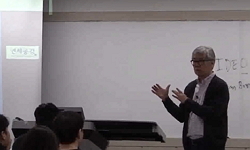격변하는 하이테크 B2B 산업 환경에서 기업은 신제품 경쟁 우위를 획득하기 위해 신제품 경쟁력과 유통 채널 경쟁력을 동시에 갖춰야 한다. 지식 관리 역량과 관련된 기존 연구는 B2B 기업이 ...
http://chineseinput.net/에서 pinyin(병음)방식으로 중국어를 변환할 수 있습니다.
변환된 중국어를 복사하여 사용하시면 됩니다.
- 中文 을 입력하시려면 zhongwen을 입력하시고 space를누르시면됩니다.
- 北京 을 입력하시려면 beijing을 입력하시고 space를 누르시면 됩니다.
https://www.riss.kr/link?id=A103149172
- 저자
- 발행기관
- 학술지명
- 권호사항
-
발행연도
2017
-
작성언어
Korean
- 주제어
-
등재정보
KCI등재
-
자료형태
학술저널
- 발행기관 URL
-
수록면
1-26(26쪽)
-
KCI 피인용횟수
1
- DOI식별코드
- 제공처
-
0
상세조회 -
0
다운로드
부가정보
국문 초록 (Abstract)
격변하는 하이테크 B2B 산업 환경에서 기업은 신제품 경쟁 우위를 획득하기 위해 신제품 경쟁력과 유통 채널 경쟁력을 동시에 갖춰야 한다. 지식 관리 역량과 관련된 기존 연구는 B2B 기업이 지식 활동을 통해 신제품 및 유통 채널 경쟁력을 증진시킬 수 있음을 제시하였다. 또한, 신제품 개발 및 출시 과정에서 신제품 및 유통 채널 경쟁력 확보는 실무적으로 분리되지 않고 긴밀한 관련성을 보인다. 그러나, 기존 마케팅 전략 연구는 신제품 개발과 유통 채널 관리 분야가 독립적으로 발전되어 두 분야를 접목시키는 연구가 제한적이다. 본 연구는 지식 기반 관점 이론과 조직 학습 이론을 기초로 하여 두 분야를 통합한 모형을 제시하였으며, 105개 국내 하이테크 B2B기업을 대상으로 실증 연구를 실시하여 다음과 같은 현상을 확인하였다. 첫째, 신제품 개발에 사용되는 지식의 형태(지식의 암묵성 및 지식의 복잡성)가 신제품 조직 학습 결과(신제품 창의성 및 신제품 품질 우월성)에 영향을 미칠 뿐만 아니라, 유통 채널 조직 학습 결과(신시장 접근성 및 유통 채널 효율성)에 영향을 미침을 확인하였다. 또한, 유통 채널 관계 특성(유통 채널 관계 의존성 및 유통 채널 관계 배태성)이 유통 채널 조직 학습 결과뿐만 아니라 신제품 조직 학습 결과에 미치는 영향을 확인하였다. 둘째, 신제품 및 유통 채널 조직 학습 결과가 신제품 경쟁 우위의 두 측면(신제품 차별화 우위 및 신제품 비용 우위)에 미치는 영향을 확인하였다. 이상의 결과를 바탕으로 본 연구는 마케팅 전략의 두 분야를 접목시켜 경쟁 우위를 추구하려는 B2B 기업의 행동에 대한 통합적인 이론적 시야를 제공하였으며, 신제품 경쟁 우위의 원천과 신제품 및 유통 채널 경쟁력에 대한 실무적 시사점을 제공하였다.
다국어 초록 (Multilingual Abstract)
In the rapidly fluctuating high-tech B2B industry, firms must pursue a competitive edge in new product and channel relationships to attain a sustainable competitive advantage. With their knowledge management capabilities, firms should utilize knowledg...
In the rapidly fluctuating high-tech B2B industry, firms must pursue a competitive edge in new product and channel relationships to attain a sustainable competitive advantage. With their knowledge management capabilities, firms should utilize knowledge acquired from various sources in order to manage new product development and to distribute new products through channels. However, in the marketing strategy research stream, new product development literature and channel management literature have been developed independently. To fill this gap, this research suggests a comprehensive model based on knowledge-based view and organizational learning theory. A sample of 105 managers in Korean high-tech B2B firms provide support for the proposed model. Specifically, we found that the type of knowledge (knowledge tacitness and knowledge complexity) used to develop new product affects not only the new product related learning outcomes (i.e., new product creativity and new product quality superiority), but also the channel related learning outcomes (i.e., new market accessibility and channel efficiency). Furthermore, we found that the characteristics of channel relationship(relational dependence and relational embeddedness) affect both the channel related learning outcomes and the product related learning outcomes. Additionally, we found the effect of the product- and channel-related learning outcomes on new product competitive advantage(new product differentiation advantage and new product cost advantage). The findings of this research provide a more comprehensive theoretical view on the organizational strategy directed towards competitive advantage, and also provide practical implications on the source of new product competitive advantage through the new product- and channel -related learning outcomes.
목차 (Table of Contents)
- ABSTRACT
- Ⅰ. 서론
- Ⅱ. 이론적 배경
- Ⅲ. 가설 설정
- Ⅳ. 연구 방법
- ABSTRACT
- Ⅰ. 서론
- Ⅱ. 이론적 배경
- Ⅲ. 가설 설정
- Ⅳ. 연구 방법
- Ⅴ. 결과
- Ⅵ. 결론 및 토의
- 참고문헌
참고문헌 (Reference)
1 Kyriakopoulos, Kyriakos, "Tradeoffs in Marketing Exploitation and Exploration Strategies : The Overlooked Role of Market Orientation" 21 (21): 219-240, 2004
2 Grant, Robert M., "Toward a Knowledge-based Theory of the Firm" 17 (17): 109-122, 1996
3 Polanyi, Michael, "The Tacit Dimension" Routledge and Kegan Paul Ltd 1996
4 Hansen, Morten T., "The Search-transfer Problem : The Role of Weak Ties in Sharing Knowledge Across Organization Subunits" 44 (44): 82-111, 1999
5 Johnson, Jean L., "The Role of Relational Knowledge Stores in Interfirm Partnering" 68 (68): 21-36, 2004
6 Jayachandran, Satish, "The Role of Relational Information Processes and Technology Use in Customer Relationship Management" 69 (69): 177-192, 2005
7 Grant, Robert M., "The Resource-based Theory of Competitive Advantage : Implications for Strategy Formulation" 33 (33): 114-135, 1991
8 Eccles, Robert G., "The Quasifirm in the Construction Industry" 2 (2): 335-357, 1981
9 Levinthal, Daniel A., "The Myopia of Learning" 14 (14): 95-112, 1993
10 Nonaka, Ikujiro, "The Knowledgecreating Company: How Japanese Companies Create the Dynamics of Innovation" Oxford university press 1995
1 Kyriakopoulos, Kyriakos, "Tradeoffs in Marketing Exploitation and Exploration Strategies : The Overlooked Role of Market Orientation" 21 (21): 219-240, 2004
2 Grant, Robert M., "Toward a Knowledge-based Theory of the Firm" 17 (17): 109-122, 1996
3 Polanyi, Michael, "The Tacit Dimension" Routledge and Kegan Paul Ltd 1996
4 Hansen, Morten T., "The Search-transfer Problem : The Role of Weak Ties in Sharing Knowledge Across Organization Subunits" 44 (44): 82-111, 1999
5 Johnson, Jean L., "The Role of Relational Knowledge Stores in Interfirm Partnering" 68 (68): 21-36, 2004
6 Jayachandran, Satish, "The Role of Relational Information Processes and Technology Use in Customer Relationship Management" 69 (69): 177-192, 2005
7 Grant, Robert M., "The Resource-based Theory of Competitive Advantage : Implications for Strategy Formulation" 33 (33): 114-135, 1991
8 Eccles, Robert G., "The Quasifirm in the Construction Industry" 2 (2): 335-357, 1981
9 Levinthal, Daniel A., "The Myopia of Learning" 14 (14): 95-112, 1993
10 Nonaka, Ikujiro, "The Knowledgecreating Company: How Japanese Companies Create the Dynamics of Innovation" Oxford university press 1995
11 Fern, Edward F., "The Industrial/ Consumer Marketing Dichotomy : A Case of Insufficient Justification" 48 (48): 68-77, 1984
12 Chandy, Rajesh K., "The Incumbent’s Curse? Incumbency, Size, and Radical Product Innovation" 64 (64): 1-17, 2000
13 Kleinschmidt, Elko J., "The Impact of Product Innovativeness on Performance" 8 (8): 240-251, 1991
14 Li, Tiger, "The Impact of Market Knowledge Competence on New Product Advantage : Conceptualization and Empirical Examination" 62 (62): 13-29, 1998
15 Narver, John C., "The Effect of a Market Orientation on Business Profitability" 54 (54): 20-35, 1990
16 Cho, Yeonjin, "The Effect of Knowledge Types in New Product Development Project on New Product Quality in High-tech Firms" 27 (27): 123-144, 2012
17 Williamson, Oliver E., "The Economics of Organization : The Transaction Cost Approach" 87 (87): 548-577, 1981
18 Song, Michael, "The Dimensions of Industrial New Product Success and Failure in State Enterprises in the People's Republic of China" 11 (11): 105-118, 1994
19 Morgan, Robert M., "The Commitment-trust Theory of Relationship Marketing" 58 (58): 20-38, 1994
20 Day, George S., "The Capabilities of Market-driven Organizations" 58 (58): 37-52, 1994
21 Rindfleisch, Aric, "The Acquisition and Utilization of Information in New Product Alliances : A Strength-of-ties Perspective" 65 (65): 1-18, 2001
22 Ettlie, John E., "Technology-based New Product Development Partnerships" 37 (37): 117-147, 2006
23 Attewell, Paul, "Technology Diffusion and Organizational Learning : The Case of Business Computing" 3 (3): 1-19, 1992
24 Uzzi, Brian, "Social Structure and Competition in Interfirm Networks : The Paradox of Embeddedness" 42 (42): 35-67, 1997
25 Rowley, Tim, "Redundant Governance Structures : An Analysis of Structural and Relational Embeddedness in the Steel and Semiconductor Industries" 21 (21): 369-386, 2000
26 Vorhies, Douglas W., "Product-market Strategy and the Marketing Capabilities of the Firm : Impact on Market Effectiveness and Cash Flow Performance" 30 (30): 1310-1334, 2009
27 Emerson, Richard M., "Power-dependence Relations" 27 (27): 31-41, 1962
28 Celly, Kirti Sawhney, "Outcomebased and Behavior-based Coordination Efforts in Channel Relationships" 33 (33): 200-210, 1996
29 Sethi, Rajesh, "New Product Quality and Product Development Teams" 64 (64): 1-14, 2000
30 Luo, Lan, "New Product Development Under Channel Acceptance" 26 (26): 149-163, 2007
31 Dean, Tereza, "New Product Creativity : Understanding Contract Specificity in New Product Introductions" 80 (80): 39-58, 2016
32 Homburg, Christian, "Marketing's Influence within the Firm" 63 (63): 1-17, 1999
33 Dickson, Peter R., "Market Segmentation, Product Differentiation, and Marketing Strategy" 51 (51): 1-10, 1987
34 Morgan, Neil A., "Market Orientation, Marketing Capabilities, and Firm Performance" 30 (30): 909-920, 2009
35 Im, Subin, "Market Orientation, Creativity, and New Product Performance in High-technology Firms" 68 (68): 114-132, 2004
36 Jaworski, Bernard J., "Market Orientation : Antecedents and Consequences" 57 (57): 53-70, 1993
37 De Luca, Luigi M., "Market Knowledge Dimensions and Cross-functional Collaboration : Examining the Different Routes to Product Innovation Performance" 71 (71): 95-112, 2007
38 Argote, Linda, "Managing Knowledge in Organizations : An Integrative Framework and Review of Emerging Themes" 49 (49): 571-582, 2003
39 Hultink, Erin Jan, "Launch Decisions and New Product Success : An Empirical Comparison of Consumer and Industrial Products" 17 (17): 5-23, 2000
40 Kogut, Bruce, "Knowledge of the Firm, Combinative Capabilities, and the Replication of Technology" 3 (3): 383-397, 1992
41 Zander, Udo, "Knowledge and the Speed of the Transfer and Imitation of Organizational Capabilities : An Empirical Test" 6 (6): 76-92, 1995
42 Frazier, Gary L., "Interorganizational Exchange Behavior in Marketing Channels : A Broadened Perspective" 47 (47): 68-78, 1983
43 Rindfleisch, Aric, "Interfirm Cooperation and Customer Orientation" 40 (40): 421-436, 2003
44 Easterby-Smith, Mark, "Inter-organizational Knowledge Transfer : Current Themes and Future Prospects" 45 (45): 677-690, 2008
45 Van Wijk, Raymond, "Inter-and Intra-organizational Knowledge Transfer : a Meta-analytic Review and Assessment of its Antecedents and Consequences" 45 (45): 830-853, 2008
46 Andrews, Jonlee, "In Search of the Marketing Imagination : Factors Affecting the Creativity of Marketing Programs for Mature Products" 33 (33): 174-187, 1996
47 Kim, Namwoon, "Impact of Knowledge Type and Strategic Orientation on New Product Creativity and Advantage in High-technology Firms" 30 (30): 136-153, 2013
48 Morgan, Neil A., "Handbook on Business to Business Marketing" Edward Elgar 90-108, 2012
49 Eisenhardt, Kathleen M., "Handbook of strategy and management, Andrew M Pettigrew" SAGE Publication Ltd. 139-164, 2002
50 John, George, "Forward Integration into Distribution : An Empirical Test of Transaction Cost Analysis" 4 (4): 337-355, 1988
51 March, James G., "Exploration and Exploitation in Organizational Learning" 2 (2): 71-87, 1991
52 Granovetter, Mark, "Economic Action and Social Structure : The Problem of Embeddedness" 91 (91): 481-510, 1985
53 Ganesan, Shankar, "Does Distance Still Matter? Geographic Proximity and New Product Development" 69 (69): 44-60, 2005
54 Beier, Frederick J., "Distribution Channels: Behavioral Dimensions" Houghton Mifflin 92-116, 1969
55 Hill, Charles W. L., "Differentiation versus Low Cost or Differentiation and Low Cost : A Contingency Framework" 13 (13): 401-412, 1988
56 Ganesan, Shankar, "Determinants of Long-term Orientation in Buyer-seller Relationships" 58 (58): 1-19, 1994
57 Gulati, Ranjay, "Dependence Asymmetry and Joint Dependence in Interorganizational Relationships : Effects of Embeddedness on a Manufacturer's Performance in Procurement Relationships" 52 (52): 32-69, 2007
58 Han, Sang-Lin, "Critical Review and Future Research Direction of B2B Marketing in Korea" 29 (29): 93-119, 2014
59 Calantone, Roger J., "Controllable Factors of New Product Success : A Cross-national Comparison" 15 (15): 341-358, 1996
60 Rosenbloom, Bert, "Conflict and Channel Efficiency : Some Conceptual Models for the Decision Maker" 37 (37): 26-30, 1973
61 Porter, Michael E., "Competitive strategy : Techniques for Analyzing Industries and Companies" Free Press 1980
62 Podsakoff, Philip M., "Common Method Biases in Behavioral Research : a Critical Review of the Literature and Recommended Remedies" 88 (88): 879-903, 2003
63 Song, Michael, "Challenges of Managing the Development of Breakthrough Products in Japan" 17 (17): 665-688, 1999
64 Teece, David J., "Capturing Value from Knowledge Assets : The New Economy, Markets for Know-how, and Intangible Assets" 40 (40): 55-79, 1998
65 Easingwood, Chris, "Bringing High Technology to Market : Successful Strategies Employed in the Worldwide Software Industry" 23 (23): 498-511, 2006
66 Day, George S., "Assessing Advantage : A Framework for Diagnosing Competitive Superiority" 52 (52): 1-20, 1988
67 Simonin, Bernard L., "Ambiguity and the Process of Knowledge Transfer in Strategic Alliances" 20 (20): 595-623, 1999
68 Marinova, Detelina, "Actualizing Innovation Effort : The Impact of Market Knowledge Diffusion in a Dynamic System of Competition" 68 (68): 1-20, 2004
69 Cohen, Wesley M., "Absorptive Capacity : A New Perspective on Learning and Innovation" 35 (35): 128-152, 1990
70 Klein, Saul, "A Transaction Cost Analysis Model of Channel Integration in International Markets" 27 (27): 196-208, 1990
71 Amabile, Teresa M., "A Model of Creativity and Innovation in Organizations" 10 (10): 123-167, 1988
72 Shin, Janghwan, "A Market-Leading B2B Fim, Bosch : What Makes it Special?"
73 Nonaka, Ikujiro, "A Dynamic Theory of Organizational Knowledge Creation" 5 (5): 14-37, 1994
74 Song, Michael, "A Cross-national Comparative Study of New Product Development Processes : Japan and the United States" 61 (61): 1-18, 1997
75 Park, Jeong Eun, "A Critical Review of Korean Channel Studies and Future Research Directions" 30 (30): 1-29, 2015
동일학술지(권/호) 다른 논문
-
- 한국마케팅학회
- 유재미(Yoo, Jae Mee)
- 2017
- KCI등재
-
자기조절자원 고갈과 평가모드가 제품 평가와 선택에 미치는 영향
- 한국마케팅학회
- 김태엽(Kim, Tae Yeop)
- 2017
- KCI등재
-
미래 혜택발생의 시점제시가 금융상품 태도에 미치는 영향
- 한국마케팅학회
- 박기경(Park, Kikyoung)
- 2017
- KCI등재
-
Not All Communication is Created Equal
- 한국마케팅학회
- Kyounghee Chu
- 2017
- KCI등재
분석정보
인용정보 인용지수 설명보기
학술지 이력
| 연월일 | 이력구분 | 이력상세 | 등재구분 |
|---|---|---|---|
| 2026 | 평가예정 | 재인증평가 신청대상 (재인증) | |
| 2020-01-01 | 평가 | 등재학술지 유지 (재인증) |  |
| 2019-05-10 | 학회명변경 | 영문명 : 미등록 -> Korean Marketing Association |  |
| 2019-04-03 | 학술지명변경 | 외국어명 : Korean Marketing Review -> Korean Journal of Marketing |  |
| 2017-01-01 | 평가 | 등재학술지 유지 (계속평가) |  |
| 2013-01-01 | 평가 | 등재학술지 유지 (등재유지) |  |
| 2010-01-01 | 평가 | 등재학술지 유지 (등재유지) |  |
| 2008-01-01 | 평가 | 등재학술지 유지 (등재유지) |  |
| 2006-01-01 | 평가 | 등재학술지 유지 (등재유지) |  |
| 2003-01-01 | 평가 | 등재학술지 선정 (등재후보2차) |  |
| 2002-01-01 | 평가 | 등재후보 1차 PASS (등재후보1차) |  |
| 1999-07-01 | 평가 | 등재후보학술지 선정 (신규평가) |  |
학술지 인용정보
| 기준연도 | WOS-KCI 통합IF(2년) | KCIF(2년) | KCIF(3년) |
|---|---|---|---|
| 2016 | 1.93 | 1.93 | 1.95 |
| KCIF(4년) | KCIF(5년) | 중심성지수(3년) | 즉시성지수 |
| 2.03 | 1.94 | 4.016 | 0.3 |





 DBpia
DBpia





